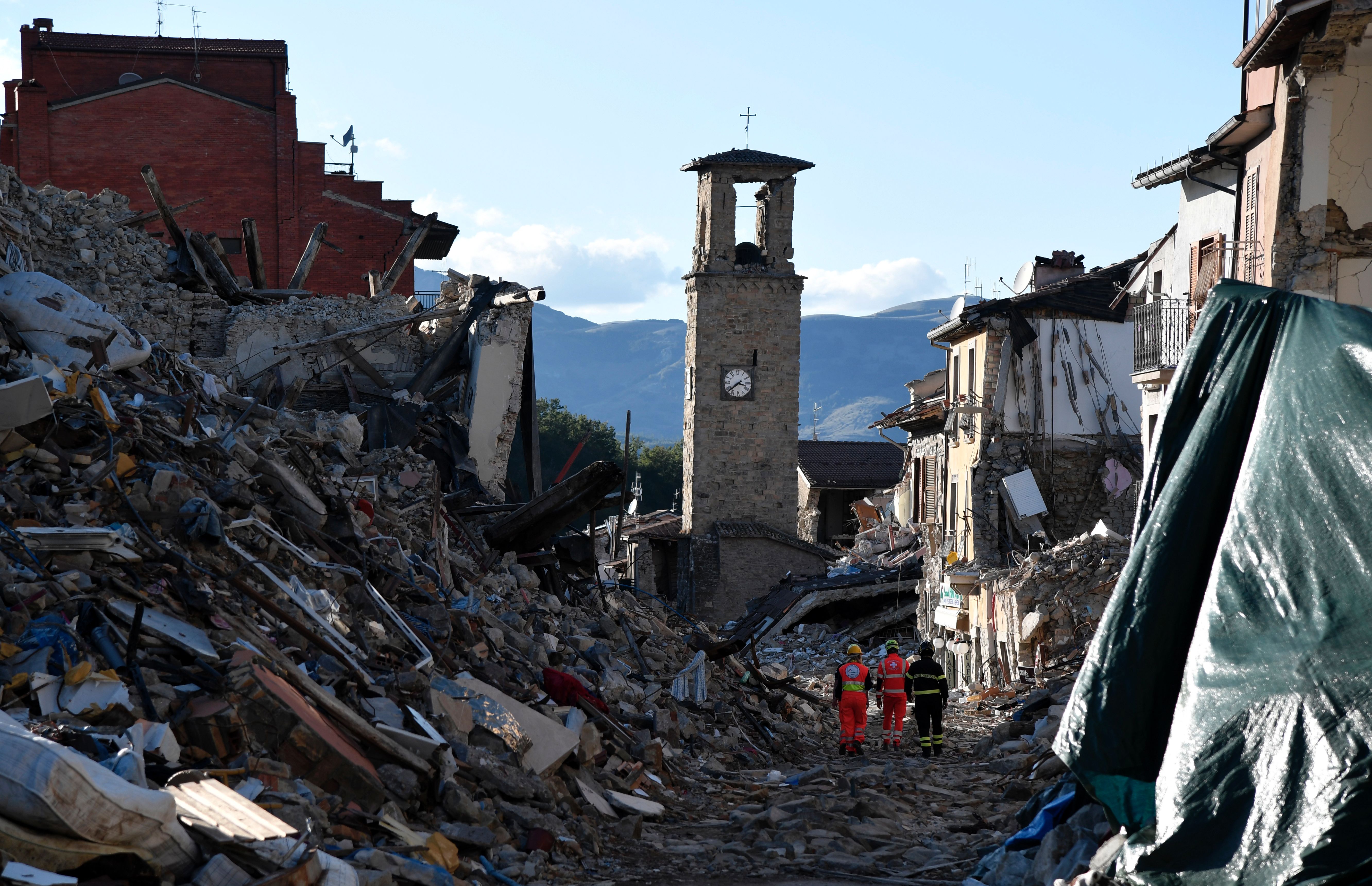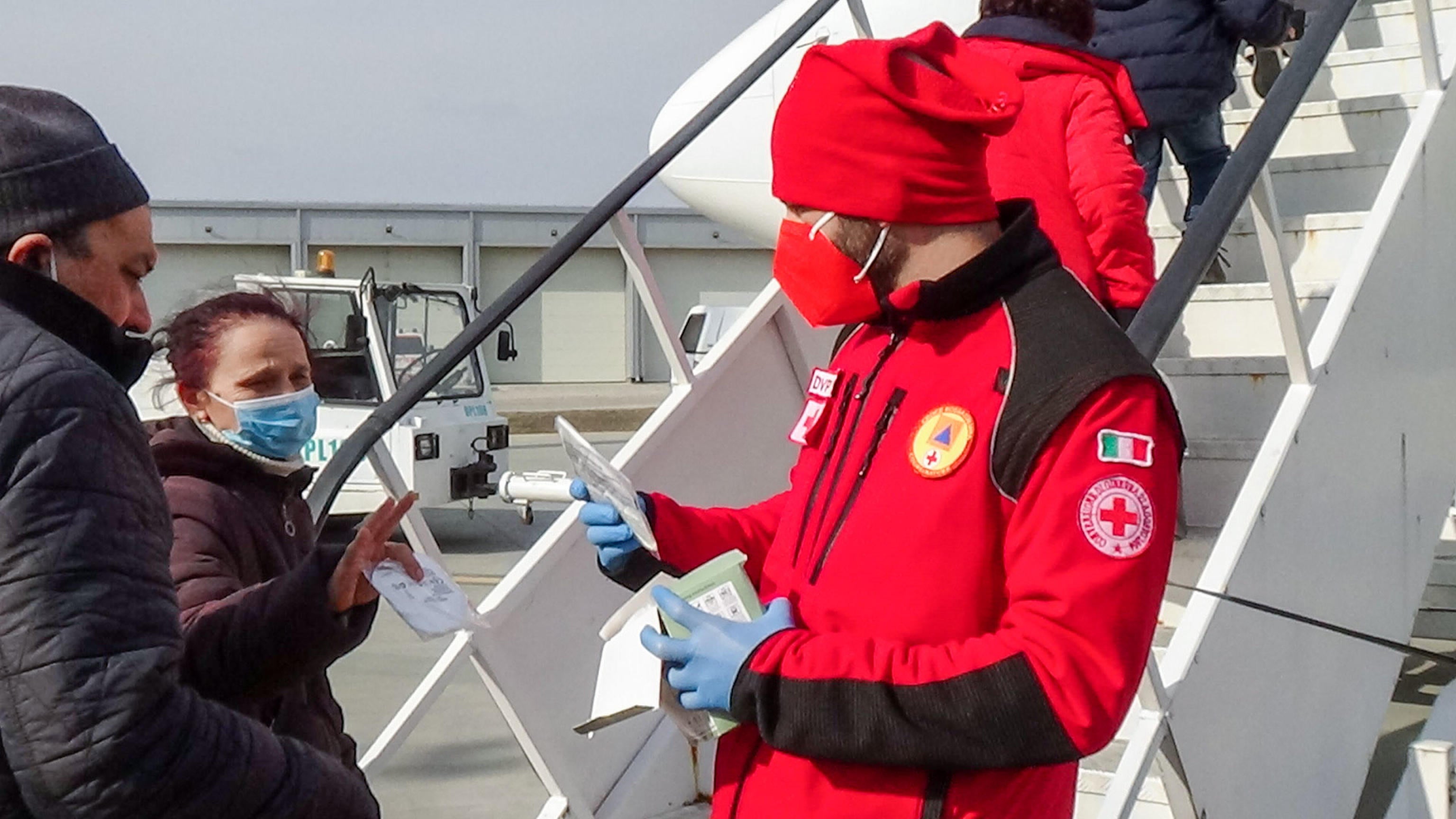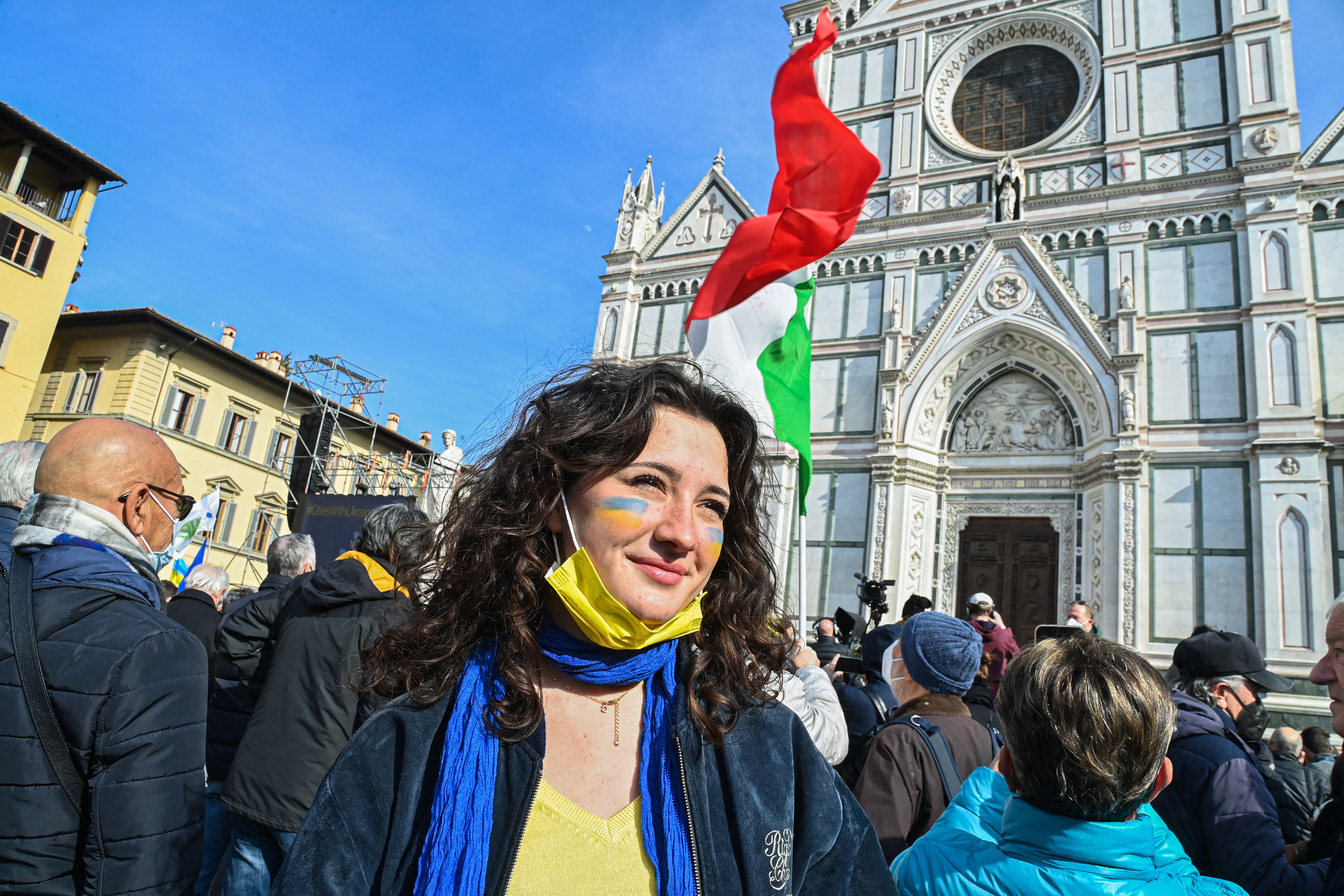Monasteries, mafia properties and earthquake cabins: Italy gets creative to house Ukrainian refugees
The Italian government and volunteers have mobilised to accommodate the tens of thousands of refugees who are arriving from Ukraine after Russia’s invasion, reports Sofia Barbarani in Rome

Local governments in Italy’s Marche region are calling for Ukrainian refugees to be housed in some of the emergency accommodation set up to shelter Italian families displaced by a series of deadly earthquakes in 2016.
With Russia’s invasion of Ukraine now in its fourth week, nearly 3.5 million people have fled from the country, and more than 50,000 of them have sought safety in Italy, including 25,846 women, 20,478 children and 4,325 men, according to the Italian interior ministry.
While most refugees are expected to resettle in major cities such as Milan, Rome, Naples and Bologna, some have reached smaller towns and villages in Umbria, Marche, and northern Lazio, where six years ago a magnitude 6.0 earthquake devastated entire cities, uprooting tens of thousands of people and killing hundreds.
What was introduced by the Italian government as a temporary solution for homeless families lasted for years, becoming a daily reminder of Italy’s stagnant bureaucracy and failure to rebuild. For years, the rural landscape in these areas has been punctuated by wooden cabins and prefabricated homes.
This month, after years in limbo, 82 families in Amatrice left their emergency accommodation when they were handed the keys to what they hope will be their forever homes.
“Amatrice begins to have a home: we were all waiting for this moment; it’s the start of normalisation,” mayor Giovanni Legnini said during a ceremony earlier this month.
But while some Italian families finally have a place to call home, millions of Ukrainians have just lost theirs.

“The reconstruction [of Italy’s damaged towns] has truly kicked off, and so the first emergency homes have been freed up, and the emotional wave fuelled by Russia’s aggression has been so significant that it led mayors to make a brave decision,” Guido Castelli, the head of reconstruction in the Marche region and former mayor of Ascoli Piceno, told The Independent.
Roughly 61 out of the approximately 1,900 emergency homes are free to house refugees, he continued.
“It’s a symbolic number, but equally symbolic is the willingness by an already suffering community to welcome others that are suffering,” said Mr Castelli, who is working with the region’s mayors to bring this project to fruition.
The refugees’ living costs will be funded by the state, and with cabin sizes ranging from 40 to 80 sq m, families will not have to be separated.
“This population weakened and made fragile by the seismic sequence of 2016 hasn’t looked away from those who are suffering,” said Mr Castelli.
The government is expecting to welcome a minimum of 60,000 Ukrainian refugees for roughly three months – taking in up to 175,000 in total. Family groups will receive approximately €600 to 900 a month (around £500-750), depending on the number of people.
The first bus reached the Slovenia-Italy border on 28 February, just four days after Russia’s invasion. Approximately 50 people were on board, including two men, and most said they were intending to stay with family and friends in the north of the country, according to news agency ANSA.

But in a war that shows no sign of abating, the number of Ukrainians forced to flee will undoubtedly increase, and those arriving are likely to continue to need government help.
Along with Italy’s government, volunteers have mobilised across the peninsula to provide accommodation and safety for the tens of thousands who have so far arrived. Private individuals and monasteries have opened their doors, abandoned homes are in the process of being fixed up, and other homes are being rented by the state.
The interior ministry has also announced plans to convert properties seized from the mafia and convert them into temporary refugee housing centres. Last week, the head of the state unit that deals with confiscating such buildings said that 500 of them had been identified, but added that it was impossible to know how many would actually be used.
Many refugees are also staying with members of the already significant Ukrainian community in Italy, which is one of the largest in Europe. Before the start of the conflict in Ukraine and the ensuing exodus, the Mediterranean country was estimated to be home to about a quarter of a million Ukrainians.

However, the head of the cultural association Ukrainian Community Marche warned that Italian families hosting refugees were beginning to feel the financial strain.
“There’s no financial help from the local government for these families,” said the president of the organisation, who preferred not to give her name. The solution, she said, was not to give families long-term accommodation, but to find them short-term homes in as little time as possible.
“It was different for the earthquake victims, they had nowhere to go,” she said. “If the war ends, these people will go back home that same day.”






Join our commenting forum
Join thought-provoking conversations, follow other Independent readers and see their replies
32Comments